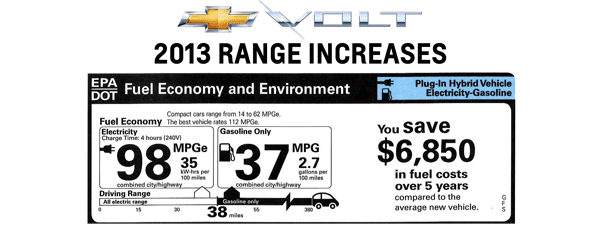

Cathy and I drove 90 miles to San Juan Island, charged for a few days in a friend’s garage when not cruising around the island, and left with a full charge. Since it’s easy to get 40 miles of range charging overnight from 120V, Level 1 is perfectly suited for overnight charging of the Chevy Volt, a plug-in hybrid with a 40-mile all-electric range.Īlthough Level 1 charging is generally too slow for a road trip, it can be helpful as destination charging. Level 1 charging at work could also be a supplement for people driving over 40 miles per day, or even a substitute for those who can’t charge at home (because they don’t have a garage or fixed parking place, for example). Maybe you’ll drive your other car, that gas-burner you keep around for long trips, or if there’s public EV charging in your area, you can charge away from home while you’re parked to do your shopping or other errands. If you need to drive 80 miles on consecutive days, you’ll need an alternative. If you drive less than 40 miles per day or charge for more than 9 hours, you’ll work back up to a full charge over the next few days. When you’re sleeping, it doesn’t matter if it takes one hour or 9 hours to charge.īut what if you have to drive a lot one day, say 80 miles? Sure, it would take 18 hours to get a full charge, but with a 9-hour overnight charge, you’ll be ready for your normal commute the next day.

If you drive 40 miles per day and charge overnight, you’ll be back to full in 9 hours. Wow, does that sound terrible! But there’s a problem with thinking this way: you’ll rarely need to do a full charge from flat empty to full. For a Leaf, this means about 4.5 miles of range per hour of charging, or about 22 hours for a full charge. However, as we actually shared a quick, basic comparison of those two models a while back, I’ll simply direct people interested to that article.Level 1 charging is the technical jargon for plugging your car into an ordinary household outlet. For most people, a comparison with a Toyota Prius Prime would probably be of relevance, especially considering the lower upfront costs of the Prime. This tends to conflict with the occasional need of 500 and 1,000 mile round trips and the limited electric range of the volt.”Īn interesting analysis. Though, a comparison with a Lexus RX 350 isn’t one that will apply to many people. In closing, it is painfully obvious the best economy is generated using all electric mode. Though I acknowledge these points, the net cost of my Volt was 59% less after rebate than the Lexus, the maintenance costs are substantially lower and so far battery degradation seems to be non-issue with the Chevy Volt.

“Some might argue that this is comparing apples and oranges since I am not including battery life and other maintenance as well as depreciation. The Lexus would need to achieve near 50 mpg to equal the Volt based on the current combined gas-electric usage of the Volt. “Lastly, applying a weighted average of all driving of the Volt at $0.0455 vs the Lexus, I determined a $0.0612 per mile savings or $458.67 annual savings based on 7,500 miles driven per year. The result was the gasoline cost per mile for the Volt was $0.0772 vs $0.112 for the Lexus.

We earlier determined (see above) the Volt achieves 36.12 mpg, while the Lexus for mixed driving achieves 21 mpg (actual usage). In doing so I needed to factor in the fact that the Volt uses premium gasoline at $2.79 per gallon and the Lexus uses regular at $2.24 per gallon. “I then needed to generate a weighted average of the cost for all miles driven on gasoline and electric for the Volt for comparison to my wife’s Lexus RX 350. Applying the cost per kwh ($0.0498 supplier and $0.0562 for delivery) and adjusting for 10% loss during charging, I determined I was achieving $0.0284 per mile while on full electric. Based on using 10 kwh’s of charge to yield the 41 miles, I received 4.1 miles per kwh. I did this by weighting 32 miles per charge for winter use to 3 months and 44 miles per charge for summer use to 9 months arriving at an average of 41 miles per charge. “First, I needed to determine my average miles per charge, including winter. “I started with the Volt Stats data and determined I use my Volt on electric 65% of the time and have a use weighted average mpg of 36.12 mpg when operating on premium gasoline. Rather than chop up his analysis, here it is (nearly) in its entirety: The cost-analysis concerns a first-generation, demo 2014 Chevy Volt that is “pretty much loaded” - apparently lacking only the collision avoidance system and the front sensors. An interesting cost-analysis overview of Chevy Volt ownership was recently posted by “edaniel” on the forum that seems worth quoting from here.


 0 kommentar(er)
0 kommentar(er)
